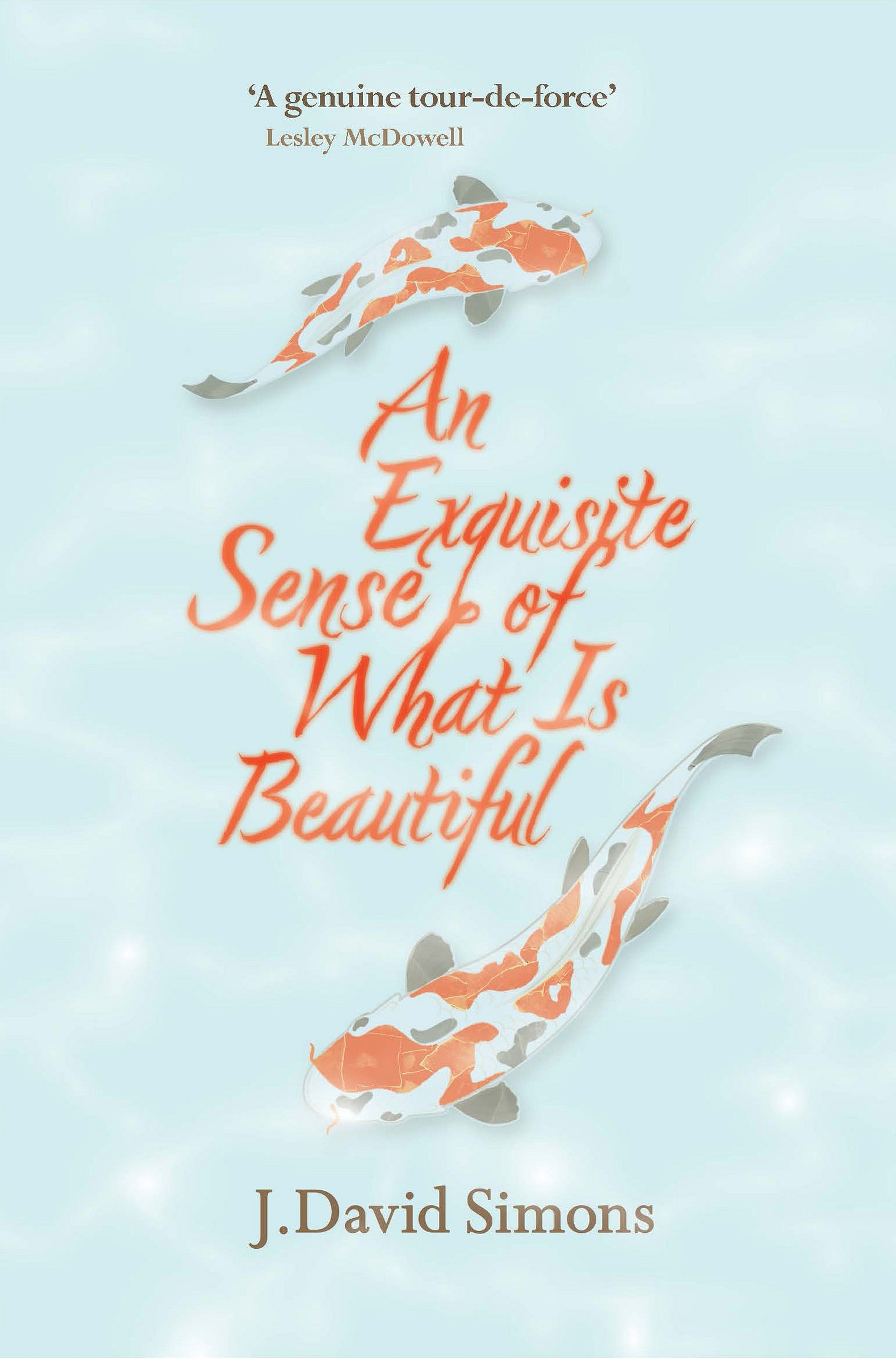Personal and Political: An Exquisite Sense of What is Beautiful by J. David Simons
Review: Previously Unpublished
An Exquisite Sense of What is Beautiful
J. David Simons
Saraband Books (2013)
I wrote this review for the Japan Times in 2014 but for some reason (I honestly cannot remember why) it didn’t get used. Around the same time I interviewed David for Eastlit, something I refer to in the article. I haven’t updated this at all; this is how it would have appeared in 2014. Given I spent Christmas 2021 in Hiroshima I have been thinking about this book a fair bit recently, hence digging this out now. David has recently published the excellent The Responsibility of Love, which I heartily recommend you check out.
An Exquisite Sense of What is Beautiful is the lifetime-spanning story of Edward Strathairn, a British novelist who returns to Japan in old age to retrace the avenues of his youth.
As a young man Edward wrote a novel called The Waterwheel, a controversial book that dealt with American guilt over the bombings of Hiroshima and Nagasaki, a book which found him both fame and notoriety. An Exquisite Sense of What is Beautiful moves back and forth over the decades of his life in London and Japan, his love affairs with a Japanese hotel employee and an American artist, culminating in a dramatic and poignant ending as he confronts the ugly truths of his existence.
J. David Simons lived in Japan in the early 1990s and many of the scenes are clearly drawn from his experiences teaching at a university in Tokyo, but An Exquisite Sense of What is Beautiful avoids the usual ‘foreigner in Japan’ clichés. Using settings such as Hakone and Kamakura, the reader is spared familiar tropes of neon Japan. By focusing, for example, on the Japanese car industry of the 1950s, then considered a joke by the rest of the world, Simons gives us a side of Japan rarely touched upon in English language fiction. For readers unfamiliar with Japan, this book is a sensitive guide. For those better versed in Japanese culture and literature, it is a worthy addition to the conversation.
The tone and emotional movements are more influenced by Japanese literature than Western Japanese-related fiction. Yasunari Kawabata’s Snow Country is frequently referenced but I found echoes of Natsume Soseki’s The Three-Cornered World, while the deliberate engagement with painful aspects of Japanese history is reminiscent of Kenzaburo Oe’s thoughtful investigations.
By making his main character a novelist who directly accuses America of war atrocities, Simons makes this controversial subject central to his book. It’s deftly handled: Simons creates in interesting triangle of debate, opening all sides of the issue with the personal often standing for the political, in particular with the mirroring of Edward’s two great loves, American Macy and Japanese Sumiko. Edward’s stance on the dropping of the atomic bombs and the firebombing of Tokyo is simple: they were war crimes.
In an interview I conducted with Simons earlier this year, he said ‘One of the few criticisms has been that I seem to be highly critical of the United States but less so with the Japanese and their denial of some of their own atrocities committed during the Second World War. I felt that I have tried to be fair to both sides in the book but I also believe that it should be up to the Japanese writers rather than a Western author to examine their own themes of denial.’
Overall I tend to agree with Simons. We shouldn’t confuse an author with their characters, and what-about-ery is never conducive to moving the conversation along. While Edward himself is sometimes biased, Simons avoids that trap through believable three-dimensional characters and realistic dialogue. Americans and Japanese are allowed to speak for themselves, even if Edward isn’t always inclined to listen.
Ultimately An Exquisite Sense of What is Beautiful is just that – a beautiful novel about how we face the world and the lies we tell to make our mistakes bearable.




